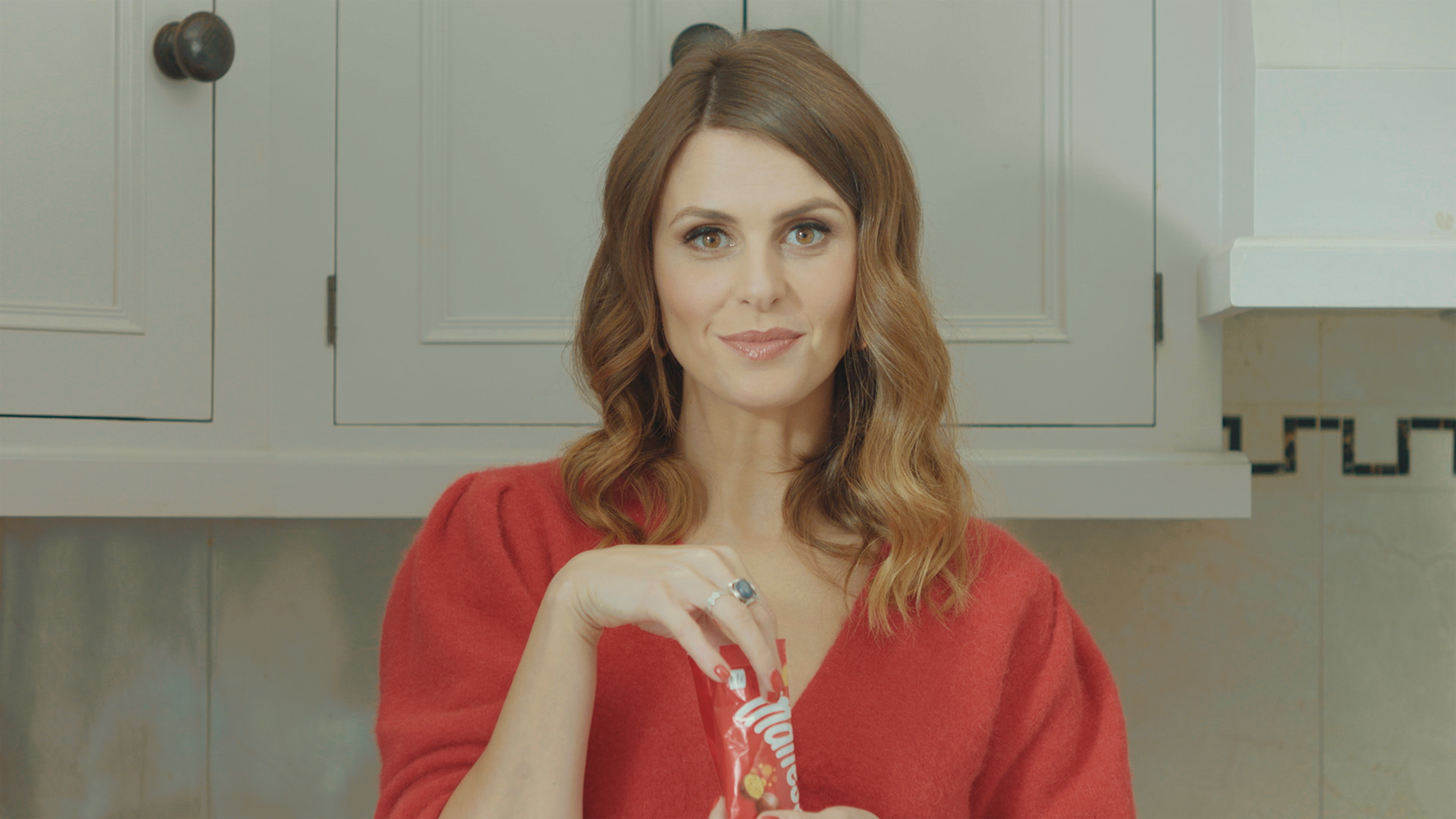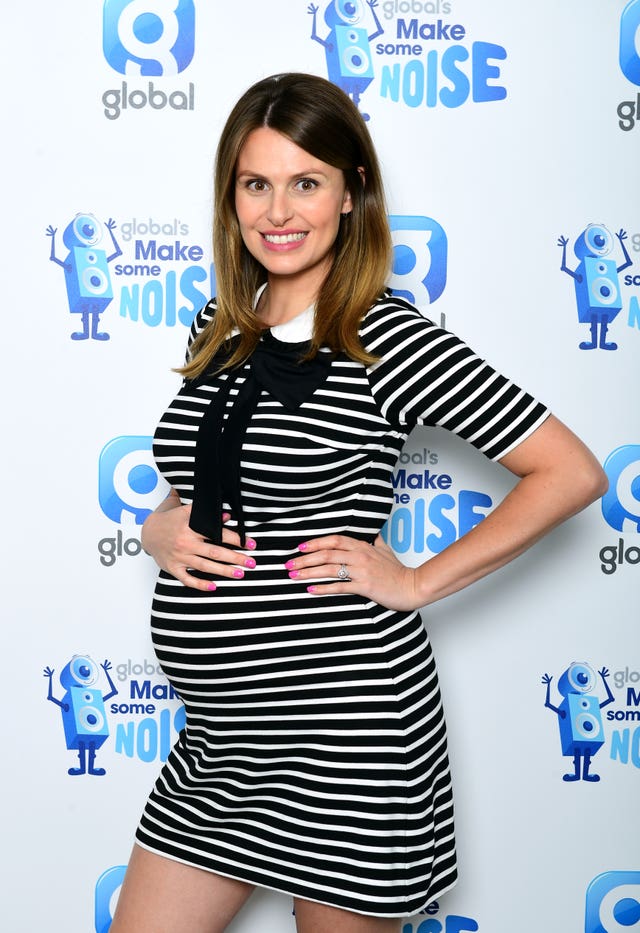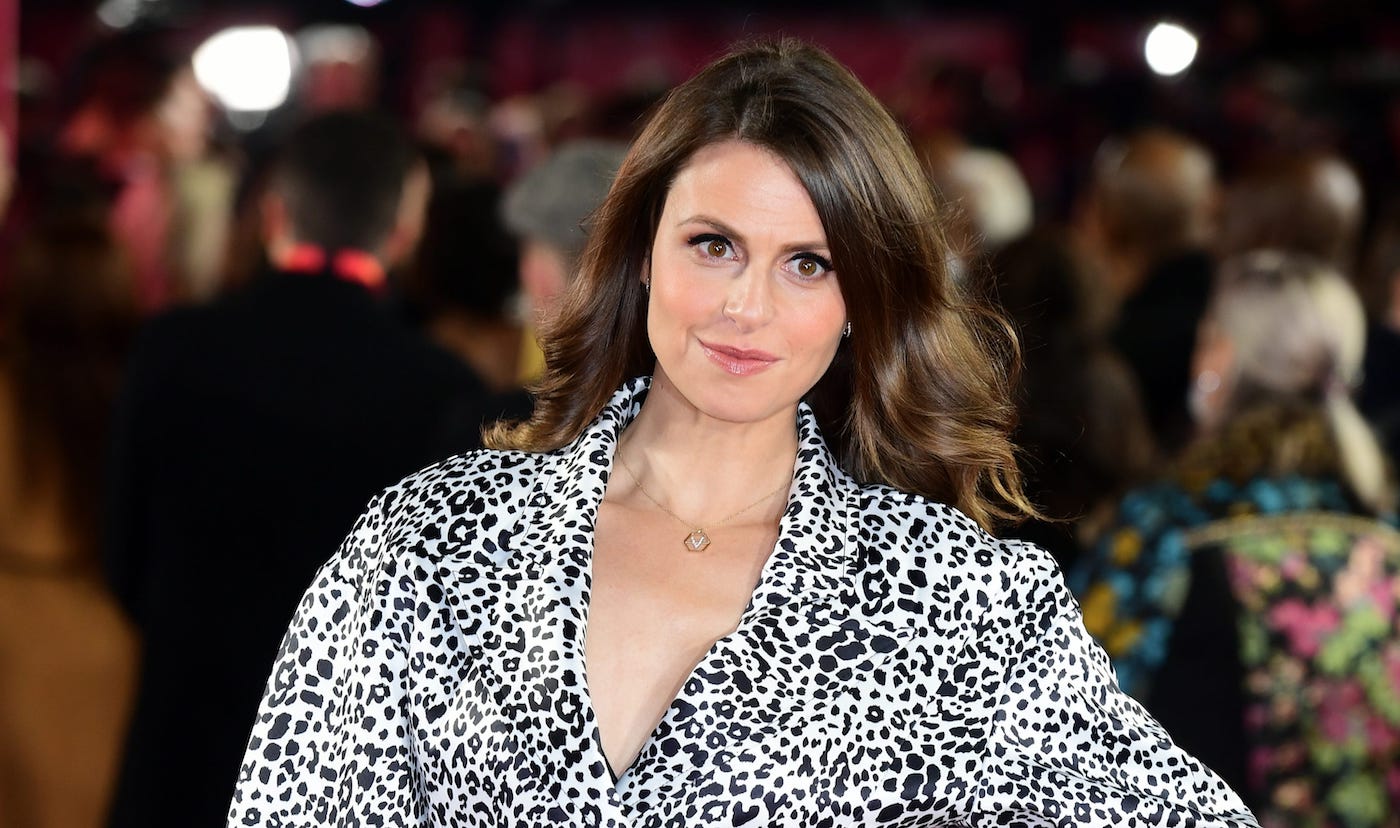
For someone who once said she had the “maternal instinct of a pitta bread” and went viral during 2016’s ‘motherhood challenge’ for a post hugging a bottle of wine, comedian Ellie Taylor’s unabashed joy for her role as a mum is really touching.
“I adore her ridiculously. I tell her I love her 3,000 times a day. I probably suffocate her with love and she’ll end up in therapy because mummy’s so clingy,” says the 38-year-old, characteristically deadpan.
Her daughter is now three and deep in that ‘Jekyll and Hyde’ tantrum phase – a stage Taylor describes as “wonderful and sometimes absolutely awful”. But in comparison to the newborn days, she says, “this is so much more my vibe.”
“She’s a proper human and she can interact and respond and you can play. It’s really tapped into my silliness – I love it. Now I get why parents are so desperately proud of their child if they do anything – like, look at the way they breathe!” she laughs.
“She’s started calling me ‘Mummy Boss’ which I quite like, and she keeps saying, ‘I like you’ – not love, but maybe I’m growing on her.”
The comedian and TV presenter, who has appeared in shows like 8 Out Of 10 Cats and The Mash Report, is due to host Channel 4’s Great Pottery Throw Down in January 2022. It comes after her hugely successful first book, My Child and Other Mistakes, in the summer of 2021.
Looking back, she says: “It does feel mad to see my reticence [before having a baby], but I suppose the reticence was when the child was an abstract idea. When you’ve actually got a child, and you love the bones of them, it’s completely different.
“But I think I, and people like me, are right to be sceptical [about parenthood] because it’s such a massive, mammoth task, it’s such a huge responsibility.”
And it’s perhaps impossible to accurately estimate the enormity of it all beforehand. “I think, at every turn, I have underestimated or misunderstood or perhaps just predicted completely incorrectly how big motherhood would be.”
Taylor is all too aware of the mental health impact becoming a mother can have. She has been very open about having “something approaching postnatal depression, or on on the fringes of it” for a long time after her daughter was born.
She says: “There were days where I thought I had lost myself forever. It felt like my life was haunted. The scariest place I’ve ever known was my bedroom at night when it was just me and the baby, when you feel like you’re the only person awake in the whole wide world.”
Today, she feels “bloody passionate” about new mums – “I suppose I just assume everyone is having as hard a time as I was.” And in the age of social media, Taylor is urging us all to do more to reach out to friends who are new mums- with more than just ‘liking’ a photo or posting ‘he/she is so cute’, although lovely, it’s probably not enough.
A recent survey by Maltesers found that a third of first-time mums admitted to only sharing positive posts on social media about parenthood, and two-thirds (64%) feel that the content other mums share doesn’t reflect the reality of how they are coping.
The survey of 1,000 people who’d had a baby in the last five years, also revealed that new mums find the first year of their baby’s life more tiring, stressful, and chaotic than they’d ever expected. Which probably won’t come as a surprise to any new parent.
Taylor says that, while social media is great, it also “fans the flames of unrealistic expectations” around motherhood. “I was probably guilty of it, to an extent,” she admits.
“I’m not saying it’s every woman’s duty to post about the intimacies of how they’re feeling if they’re struggling, but now with hindsight, I’m in a position to say, ‘Hey, my experience of new motherhood was actually really hard. At points, really, really hard and I hated it.
“I feel like it’s an honour really, a privilege, to have a healthy baby who I love, but also be able to have the hindsight, the space and the confidence to say newborn life was probably the worst six months of my life.”
She wishes conversations about mental health around this time in women’s lives were more normalised, beyond the talk of a possible few days of ‘baby blues’ post birth, because the reality is there’s a vast grey area between a dip in hormones and a diagnosed mental illness.
“I think it’s quite harmful in a way to just dismiss it with that neat phrase. It can devastating, that unknown feeling of being lost in your own life.”
Maternal mental health is “sort of sidelined because women have kids all the time”, she says.
“Yes, in a way, it’s the most boring, run of the mill life choice to have a child – there’s nothing very punk about having a baby – but for each and every person who has a child, it’s enormous, this titanic thing that’s happened to them.”

Many of her friends opened up about struggling with their mental health postnatally after Taylor’s book was published.
“I wish I’d known that other people found it [hard],” she says. “To hear more experiences in a casual way -rather than a doctor telling you about postnatal depression, but a woman who is similar to you, who you feel a connection to, saying, ‘Yeah, I think I probably had that’.”
It’s why she’s supporting the new #LoveBeatsLikes campaign, encouraging people to really show up for new mothers.
“Your friend is about to have the biggest life shift they will have ever known. And they’re going to look after the baby and it’s kind of your job to look after your friend.”
She advises asking specific questions like, ‘How is today?’, ‘How was last night?’ and says: “I’m more likely to be honest with that specific questioning, rather than a general one which we all brush off with ‘I’m fine’.”
And remember parenthood isn’t linear, your friend will have good and bad weeks for months.
“You get a lot of messages in the first few weeks but by two, three, four months into the sleep deprivation, you’re sort of getting used to things but your old life is still close enough to touch.
“Just because someone’s over the newborn stage, it doesn’t mean they don’t need love and care,” she says. “So show up, turn up” – preferably with a lasagne. “Food is much better than a babygrow.”
Ellie Taylor is supporting Maltesers’ #LoveBeatsLikes campaign in helping to raise awareness of maternal mental health.
